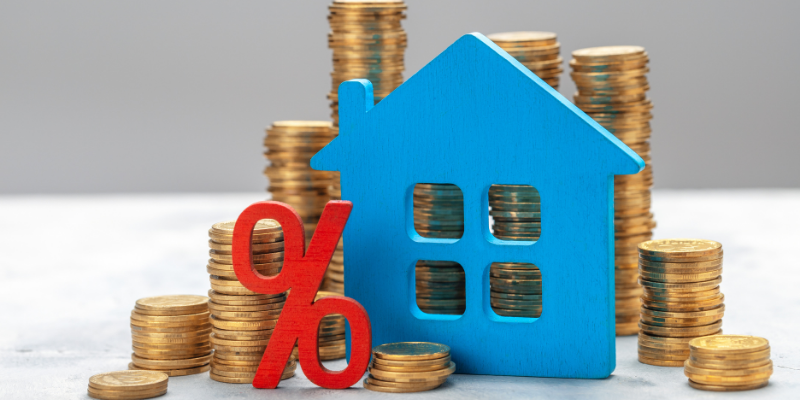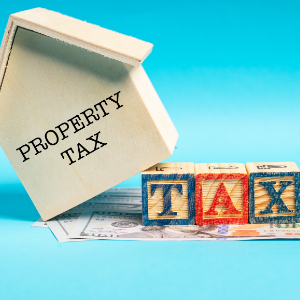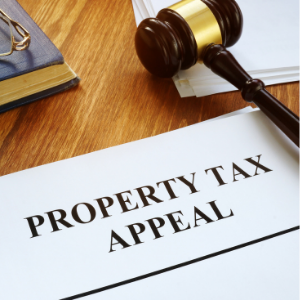
Understanding the Property Tax System in Charlotte, NC
Understanding the property tax structure in Charlotte, NC, is critical for homeowners and real estate investors. Several significant elements influence Charlotte property taxes, including the property’s assessed value, which is evaluated regularly by the Mecklenburg County Assessor’s Office.
Market circumstances and property improvements can impact the assessed value used to calculate property taxes. Once the property’s worth has been determined, it is multiplied by the local property tax rate, which is set annually by local governments to pay for critical services such as schools, public safety, and infrastructure development.
Homeowners should know that these fees vary throughout Charlotte and Mecklenburg County municipalities. Certain exemptions or deductions may also apply to qualified properties, potentially lowering the tax burden.
For those looking to sell their Charlotte house fast and avoid future tax hikes or the hassle of assessments, working with a local expert like Zack Buys Houses can offer a streamlined solution. They buy homes for cash, helping sellers skip complicated tax-related delays—especially in fluctuating markets like Charlotte, Concord, or Gastonia.
Staying updated about reassessment cycles and appealing assessments as needed are critical techniques for efficiently managing property taxes in today’s volatile real estate market.
How Property Taxes Are Calculated in Charlotte, North Carolina

A clear grasp of property taxation is essential for homeowners and investors in Charlotte. The Mecklenburg County Assessor’s Office is the foundation of the process, assigning an assessed value to each property based on its fair market value.
The office conducts a revaluation every four years to ensure the assessed value mirrors the prevailing market. Once the current assessed value is established, it is multiplied by the prevailing tax rate set by the various jurisdictions—Charlotte, Mecklenburg County, and any special districts for schools and public services.
Taxes are expressed in dollars per $100 of assessed value. Homeowners may qualify for targeted exemptions or relief programs that can further reduce the final tax bill. Mastering these mechanics allows property owners to budget effectively and pursue informed investments within Charlotte’s dynamic market.
If you’re overwhelmed by rising valuations and want to move on from your property, Zack Buys Houses is ready to help. Whether you’re in Charlotte or nearby markets like Huntersville or Concord, we buy homes for cash in Gastonia and surrounding areas, making it easier to move forward without waiting for lengthy buyer financing or tax review processes.
Key Factors Influencing Charlotte’s Property Tax Rates
Homeowners and investors should monitor three key elements that affect Charlotte’s property tax rates. The Mecklenburg County Assessor’s Office gives priority to the assessed value.
It determines the property’s market value, which sets property taxes. Property taxes fund critical public services like education, infrastructure, and safety; thus, the local government’s financial needs must also be considered.
In economic expansion or depression, Charlotte officials may adjust property tax rates to match revenue demands or real estate market values. Municipal officials may also change exemption levels, reassessment processes, or general rate revisions to ensure fiscal adequacy or encourage specific land use and development patterns.
Demographic shifts and urban growth patterns affect community service needs and infrastructure investment. Understanding these aspects is crucial for managing Charlotte property taxes.
Compare Charlotte’s Property Tax Rates to Other Major North Carolina Cities
Charlotte, North Carolina’s largest city, has lower property taxes than other major cities. It also has a vibrant economy and many facilities.
It pays less in property taxes than Raleigh, Greensboro, and Asheville. This advantage makes the city more appealing to homeowners and institutional investors seeking long-term profits.
Raleigh’s municipal priorities and budget structures result in slightly lower tax rates, while Greensboro’s fluctuate with economic cycles and infrastructure improvements.
Mountain tourism in Asheville might result in tax differentials for tourism-related capital projects. Charlotte, however, balances metropolitan growth with budgetary responsibility, making it a desirable place for property investment and permanent residence.
This analysis shows how Charlotte’s property tax system promotes broad-based economic growth while maintaining affordability and regional attractiveness, accommodating North Carolina’s urban and peri-urban surroundings.
Local Government Policies and Charlotte Property Taxes
Municipal government policies and property taxation directly affect Charlotte, North Carolina, homeowners and investors. The city council decides on departmental budgets, public service scope, fiscal management, millage rates and assessments.
When the council improves public infrastructure, education, or emergency services, the budget shortfall may need a higher property tax levy. However, economic diversification and enterprise retention measures often rebalance the tax base between residential and commercial assets.
Mecklenburg County’s state-mandated reassessment cycles refine the property value-tax obligation relationship. In this system, targeted tax incentives like temporary abatements for new developments redistribute tax burdens on benefiting parcels and the tax rolls.
Permitted uses and density bonuses affect income streams and assessed value; therefore, municipal zoning rules and land-use controls subtly but profoundly impact property values. Charlotte market participants must understand policy and assessment for solid fiscal planning and sensible investment.
The following parts will help Charlotte, NC, property owners and investors build a successful appeal against an adverse assessment using local regulatory agency procedural and substantive rules.
Appealing Your Charlotte, NC Property Tax Assessment

As a Charlotte, NC, homeowner or real estate investor, knowing how to appeal your property tax assessment can affect your finances. Start by examining the Mecklenburg County Assessor’s Office property tax assessment notification.
Make sure property facts like square footage, bedrooms, and upgrades are accurate. Find errors and omissions that can raise the appraised value. Gather recent property assessments, photos, and sales data for lower-valued nearby comparable homes.
Submit your appeal to the Mecklenburg County Board of Equalization and Review by the notice time after gathering evidence. Keep your argument clear and appealing throughout the hearing.
A well-structured presentation should highlight the difference between your property’s assessed and market values, based on Charlotte real estate trends. Consult a local real estate specialist or property tax attorney to bolster your case.
These precise methods will help you lower your property tax payment and get a fair assessment of your property’s value.
Reducing Your Charlotte Property Tax Bill Using Exemptions
Charlotte homeowners and investors can cut property taxes with various exemptions and discounts. Understanding these opportunities helps property owners plan for taxes.
The Homestead Exemption still offers the most to qualified elderly and disabled residents. The exemption reduces the primary residence’s assessed and taxable value, cutting taxes. Veterans and their spouses have separate provisions that lower the assessed value and save money.
Property tax mitigation is also available to investors. When the assessed value differs from market evidence, owners can apply for recalibration. Properties with solar installations or energy-efficient equipment may qualify for additional incentives to decrease liability and promote sustainable development.
Understanding exemptions and reductions can boost homeowners’ and investors’ cash flow estimates in Charlotte’s volatile property market.
What Is the Average Tax Rate in Charlotte, NC?
The average property tax obligation in Charlotte, North Carolina, remains a foundational consideration for residential owners and real estate investors. In Mecklenburg County, this obligation is directly derived from the property’s appraised value.
Charlotte’s average property tax is approximately 0.85 percent of the assessed value. Thus, for every $100,000 in appraised property value, the annual liability amounts to about $850. However, prospective purchasers and investors should remember that this figure is not static; it may shift modestly based on the property’s precise location, the presence of any special assessment districts, and supplementary municipal levies.
The City of Charlotte conducts regular appraisals to achieve equity in assessment, making it prudent for all stakeholders to monitor any resultant adjustments in valuations or rates. Grasping the average property tax liability in Charlotte aids homeowners in effective financial planning and allows investors to formulate more precise models of anticipated return on investment.
How Much Is Property Tax on a House in North Carolina?
When analyzing property tax obligations in North Carolina, particularly within Charlotte’s dynamic real estate market, homeowners and investors must grasp the layered process by which these obligations are computed. Local property taxes derive from the assessed value of real estate, a figure that county tax assessors periodically establish through mass appraisal techniques.
In Charlotte, the effective tax rate merges the county and municipal levies. Based on the latest data, Mecklenburg County imposes a rate of approximately 0.6169% per $100 of assessed value; the City of Charlotte levies a supplemental rate that elevates the consolidated rate to approximately 1.31% of the assessed value.
To illustrate, a property appraised at $300,000 within the municipality would incur a liability of roughly $3,930 in annual taxes, a figure that prospective purchasers and seasoned investors must integrate into pro forma analyses and cash flow forecasts.
Therefore, a clear comprehension of these rates is essential in evaluating the long-term viability of investment portfolios and the immediate affordability of owner-occupied housing in the Charlotte market.
At What Age Do You Stop Paying Property Taxes in NC?

In North Carolina, most notably in Charlotte, older homeowners may access property tax relief that can ease their fiscal obligations. While the state imposes no mandatory retirement age for tax payment, targeted programs are designed for senior residents.
The most prominent initiative is the Homestead Exclusion, which grants a partial exemption for taxpayers aged sixty-five or older, contingent upon meeting specific income thresholds. By lowering the appraised value employed in the tax calculation, the exclusion effectively reduces the overall liability.
In addition, the Circuit Breaker Property Tax Deferment program allows qualifying seniors and disabled taxpayers to defer a portion of their liability until the property is sold or ownership is transferred, thus delaying immediate cash outflows.
For Charlotte homeowners and investors, grasping the mechanics of these instruments is essential for integrating them into broader financial strategies and realizing the full potential of North Carolina’s real estate market.
Whether you’re dealing with rising property taxes, unexpected financial burdens, or simply want to sell your house quickly without the usual stress, Zack Buys Houses offers a fast, fair, and reliable solution for homeowners throughout Charlotte and the surrounding areas. Contact us at 704-769-0141 to get your offer today!
Helpful Charlotte Blog Articles
- Selling Your Charlotte Home After A Few Years
- Optimal Seasons For Selling A Home In Charlotte, NC
- Navigating a Reverse Mortgage Sale in Charlotte, NC
- Selling A Mold-affected House In Charlotte, NC
- Guide To Replumbing Your Charlotte, NC, Home
- Selling A Water-Damaged House In Charlotte, NC
- Selling Inherited Property In Charlotte, North Carolina
- Selling Your Duplex In Charlotte, NC
- Selling Jointly Owned Real Estate In Charlotte, NC
- Selling Inherited Property In Charlotte, North Carolina
- Understanding Charlotte, NC, Property Tax Rates
- Guide To Selling A House With Asbestos In Charlotte, NC
- Home Equity Requirements for Selling Your Charlotte, NC
- Selling Your Charlotte, NC, Home After A Few Years
- Sell Your House And Relocate In Charlotte, NC

| TAX BASED | CHARLOTTE , NORTH CAROLINA | EFFECTIVE TAX RATES | MORTGAGES | MECKNC.GOV | INBOX |
| REAL ESTATE AGENTS | MULTIPLE LISTING SERVICES | MLS | PINEVILLE | PERCENTAGE | |
| MINT HILL, NC | BROKER | OF NORTH CAROLINA |
